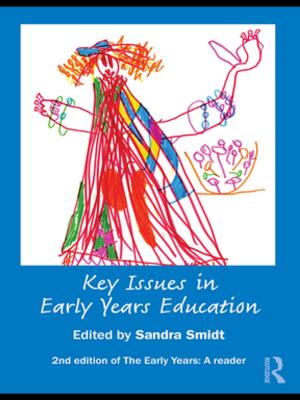Music, Difference and the Residue of Race
Nonfiction, Social & Cultural Studies, Social Science, Discrimination & Race Relations, Cultural Studies, Popular Culture, Sociology| Author: | Jo Haynes | ISBN: | 9781136191916 |
| Publisher: | Taylor and Francis | Publication: | November 12, 2012 |
| Imprint: | Routledge | Language: | English |
| Author: | Jo Haynes |
| ISBN: | 9781136191916 |
| Publisher: | Taylor and Francis |
| Publication: | November 12, 2012 |
| Imprint: | Routledge |
| Language: | English |
Race and music seem fatally entwined in a way that involves both creative ethnic hybridity and ongoing problems of racism. This book presents a sociological analysis of this enduring relationship and asks: how are ideas of race critical to the understanding of music genres and preferences? What does the 'love of difference' via music contribute to contemporary perspectives of racism? Previous studies of world music have situated it within the dynamics of local/global musical production, the representation of nations and ethnic groups, theories of globalization, hybridization and cultural appropriation. Haynes adds a conceptual and textual shift to these debates by utilizing world music as a lens for examining cultural imaginaries of race and analytical nuances of racialization. The text offers a view of world music from 'within,' building on original, qualitative, interview-based research with people from the British world music scene. These interviews provide unique insights into the discursive repertoires that underpin contemporary culture, and will make a significant contribution to the mainly theoretical debates about world music.
Race and music seem fatally entwined in a way that involves both creative ethnic hybridity and ongoing problems of racism. This book presents a sociological analysis of this enduring relationship and asks: how are ideas of race critical to the understanding of music genres and preferences? What does the 'love of difference' via music contribute to contemporary perspectives of racism? Previous studies of world music have situated it within the dynamics of local/global musical production, the representation of nations and ethnic groups, theories of globalization, hybridization and cultural appropriation. Haynes adds a conceptual and textual shift to these debates by utilizing world music as a lens for examining cultural imaginaries of race and analytical nuances of racialization. The text offers a view of world music from 'within,' building on original, qualitative, interview-based research with people from the British world music scene. These interviews provide unique insights into the discursive repertoires that underpin contemporary culture, and will make a significant contribution to the mainly theoretical debates about world music.















